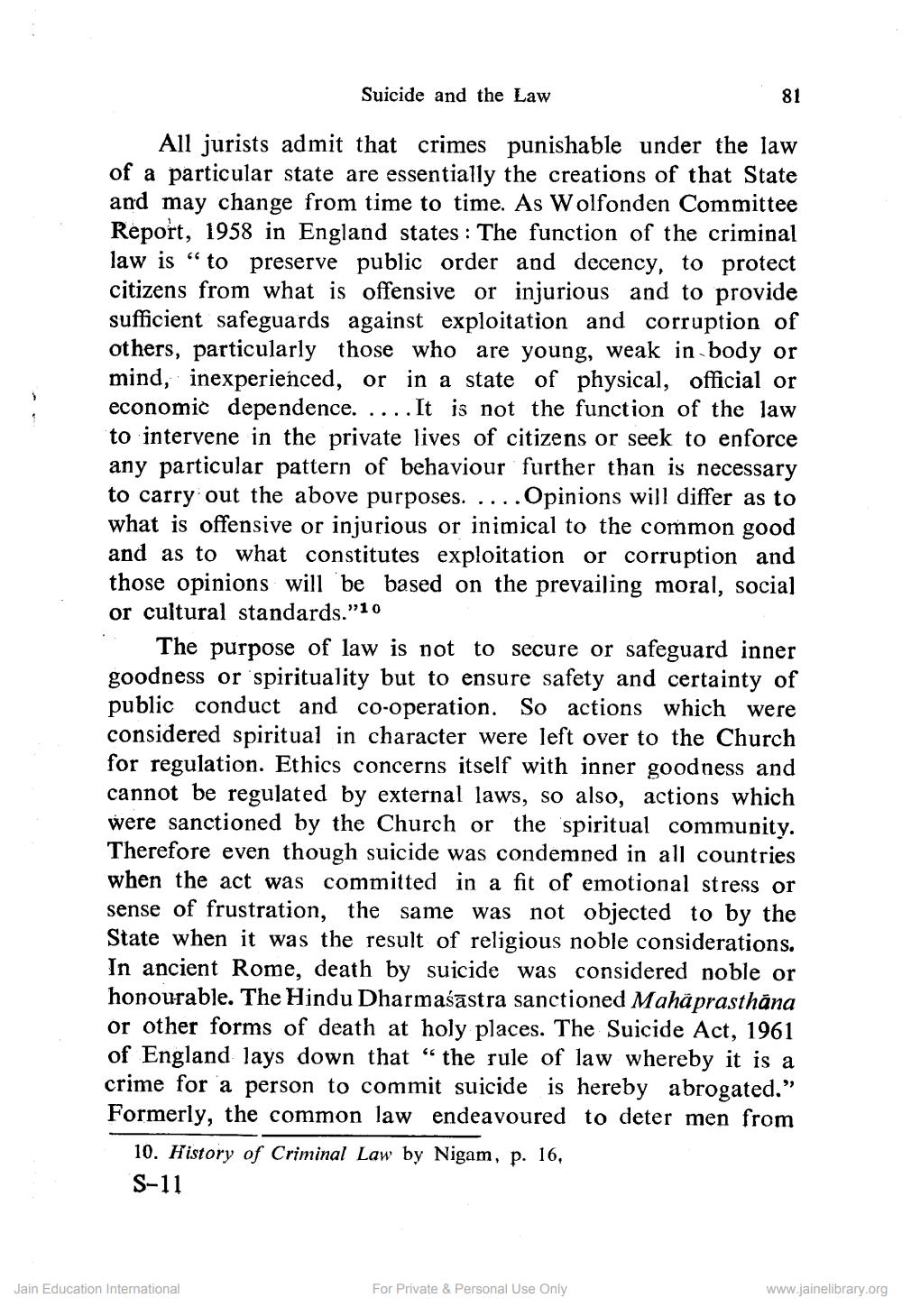________________
Suicide and the Law
All jurists admit that crimes punishable under the law of a particular state are essentially the creations of that State and may change from time to time. As Wolfonden Committee Report, 1958 in England states : The function of the criminal law is “to preserve public order and decency, to protect citizens from what is offensive or injurious and to provide sufficient safeguards against exploitation and corruption of others, particularly those who are young, weak in body or mind, inexperienced, or in a state of physical, official or economic dependence. ... . It is not the function of the law to intervene in the private lives of citizens or seek to enforce any particular pattern of behaviour further than is necessary to carry out the above purposes. ....Opinions will differ as to what is offensive or injurious or inimical to the common good and as to what constitutes exploitation or corruption and those opinions will be based on the prevailing moral, social or cultural standards."10
The purpose of law is not to secure or safeguard inner goodness or spirituality but to ensure safety and certainty of public conduct and co-operation. So actions which were considered spiritual in character were left over to the Church for regulation. Ethics concerns itself with inner goodness and cannot be regulated by external laws, so also, actions which were sanctioned by the Church or the spiritual community. Therefore even though suicide was condemned in all countries when the act was committed in a fit of emotional stress or sense of frustration, the same was not objected to by the State when it was the result of religious noble considerations. In ancient Rome, death by suicide was considered noble or honourable. The Hindu Dharmaśāstra sanctioned Mahaprasthåna or other forms of death at holy places. The Suicide Act, 1961 of England lays down that “the rule of law whereby it is a crime for a person to commit suicide is hereby abrogated.” Formerly, the common law endeavoured to deter men from
10. History of Criminal Law by Nigam, p. 16, S-11
Jain Education International
For Private & Personal Use Only
www.jainelibrary.org




